Promoters cite challenges for local awards shows
With the debate surrounding the Grammy Awards at fever pitch, there have been calls from music industry insiders and fans for a return to the staging of locally produced music awards shows.
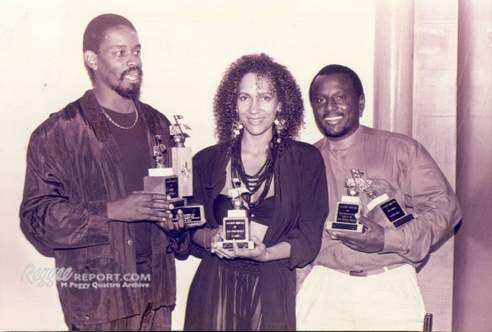
Currently there is only one major music awards show, the Jamaica Reggae Industry Association (JaRIA) Honor Awards. However, over the past 30 years there have been several locally produced awards shows including the Jamaica Federation of Musicians (JFM) Awards; the Rockers Awards; the Binns Awards; the Youth View Awards (YVAs); the Jamaica Music Industry (JAMI) Awards, Reggae Academy Awards and the Excellence in Music and Entertainment Awards (EME), which have all sought to show appreciation to members of the entertainment fraternity.
The individuals behind some of these awards shows have cited a number of factors and challenges which have resulted in the pulling of the plug on their event.
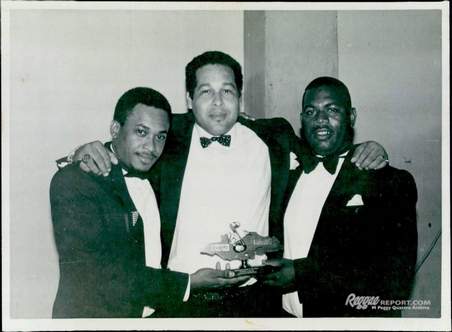
Anthony “Tony” Gambrill is the conceptualizer of the JAMI Awards which was held from 1986 to 1993 under his leadership. In 1994, Pulse Limited made an attempt to continue the awards but withdrew after one staging.
“The main objective of the JAMI Awards was to recognize excellence and popular music. And yes, those objectives were met,” Gambrill, who is now 87 years old shared, in an interview with the Jamaica Observer.
The JAMI Awards was promoted by corporate giant D&G for its flagship product Red Stripe and Radio Jamaica.
As Gambrill noted there were a number of challenges faced in staging the event.
“The challenges include finding ways to organize the music fraternity as a voting block and occasionally the unwillingness of a few individuals in the music industry to participate.”

He said the response from corporate Jamaica was enthusiastic, however “The sponsoring company withdrew. The cost of underwriting the JAMIs was approximately a million dollars a year. After nine years, they discontinued their support.”
Popular broadcaster Richard “Richie B” Burgess was the creative force and promoter behind the Excellence in Music and Entertainment (EME) which ran from 2008 to 2012.
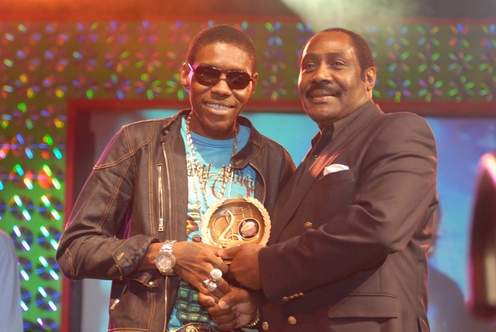
“Well, the objective really was to award the top performers in any given year on the Jamaican music landscape. I had visions of making it something that would rank similarly to the BET Awards or the Grammys at the higher level, and so we thought that the need existed for that kind of a show to be done to honor and to use as a source of motivation for players within the industry to try to lift the standards, and get further recognition and international acclaim along the way,” said Burgess.
“I believe we achieved some of the objectives. One-year Black Entertainment Television (BET) partnered with us and we got a lot of exposure on their website. They even sent a team down to cover it and we got a lot of mileage. There was a category called International Friend of Reggae where we found an artiste who is not from our genre, but who was embracing our culture by doing a collaboration with a with a reggae or dancehall artiste, and we had various persons who were given that honor who attended or sent in their thank you and appreciation by video. We had participation from Akon and John Legend. India Arie even attended one year,” he continued.
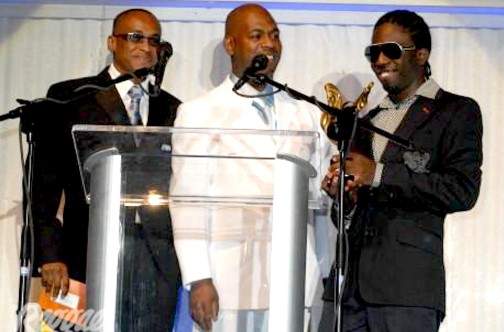
Financing, lack of corporate support and the attitude of entertainers towards the event were some of the challenges that resulted in the plug being pulled on the event.
“The lack of sponsorship or adequate sponsorship was one of the challenges. I had excellent media support at the time. I was a part of the CVM Group, working at Hot 102 and the support was there. The corporate support just wasn’t coming. One year I had to sell my car to invest in the show. However, I got a lot of support on the technical side from companies like Starlight Productions,” Burgess shared.
He added, “The participation of the entertainers was another major challenge that we had. Artistes did not embrace it as well as we wanted them to. When the nominees were announced, I would see the PR going out from the artistes but on the given day of the event, persons would not be present. Yes, we had some but some of the main awardees were absent. We attracted the international artistes, even rapper Eve was here for one year, but we were not getting the participation with the local big-name acts.”
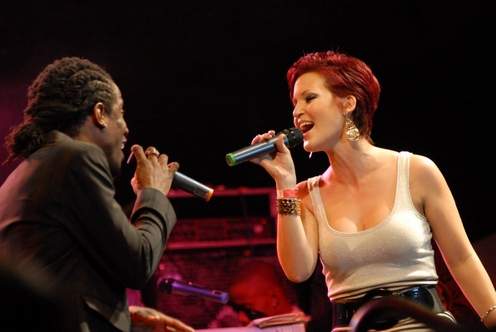
Burgess said there came a point when he could no longer afford to carry the weight of staging the EMEs.
“I couldn’t carry it out of my pocket any longer. We really weren’t getting the corporate support and I got frustrated. Many people who worked on that event were volunteers who bought into the vision.”
Asked whether he would reconsider reviving the EMEs, Burgess said: “I have been approached and I am considering coming back with it. Many from the entertainment industry have in fact called me, but I would have to have certain levels of support even from the corporate side to even consider it going forward.”
Linval Gibbons is a serial events promoter. He is best known as the force behind the popular Pepsi Teen Splash, Teens Easter Monday Bash, Teens New Years Day Bash, Sun Festival and Teens Dance Fever.
Gibbons was also the co-creator and promoter of the Rockers Awards along with broadcaster the late Bagga Brown.
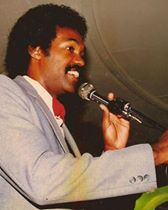
“We (myself and Bagga Brown) were at an event at the National Stadium and we said look how the man dem a work inna the rain and them nuh get nutting at all in return. Right there and then, we decided to start Rockers Awards as a means to award the artistes for their service to the industry,” said Gibbons.
Rockers Awards consisted of 15 categories. They included categories for female and male vocalists, male and female DJs, sound systems, Song of the Year, Producers and Best New Artiste. It was held the last Saturday of January from the late 1980s to the early 2000s.
“In the early years, we felt that we achieved our objectives and people were excited about it. But after a while, it reached a stage where we began to receive threats from people who didn’t win awards. Persons also wanted to dictate to us about who should win, and some who didn’t, started to bad mouth the awards,” Gibbons recalled.
He continued, “Rockers Award wasn’t a money maker and we were losing money and many of the artistes didn’t want to perform for a stipend. A certain artiste came and was outside in his car waiting to hear if their name was going to be called and if they won, they would come inside the venue.”
Gibbons said sponsorship for individual award categories helped to keep the awards going.
“We just decided that after a while, enough is enough. It wasn’t financially viable and people got disrespectful because they didn’t win,” said Gibbons.
Asked if he would consider reviving the Rockers Award, Gibbons said “It would be hard. Who are we going to reward? I would feel a way giving an award to certain people. If I’m approached by a good team of people who know the business, then maybe,” said Gibbons.
The Rockers Award was held at several venues including the National Arena, Ranny Williams Entertainment Centre and the Jamaica Pegasus hotel.


You must log in to post a comment.